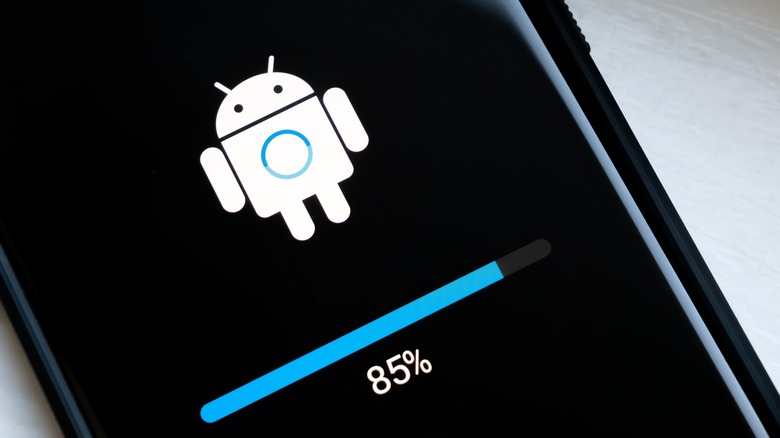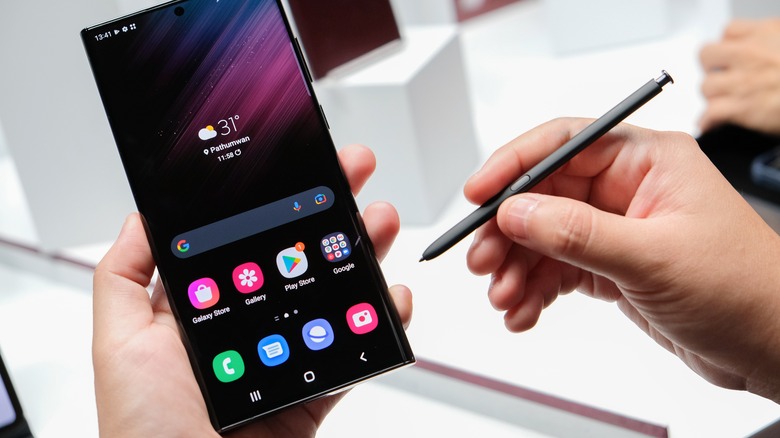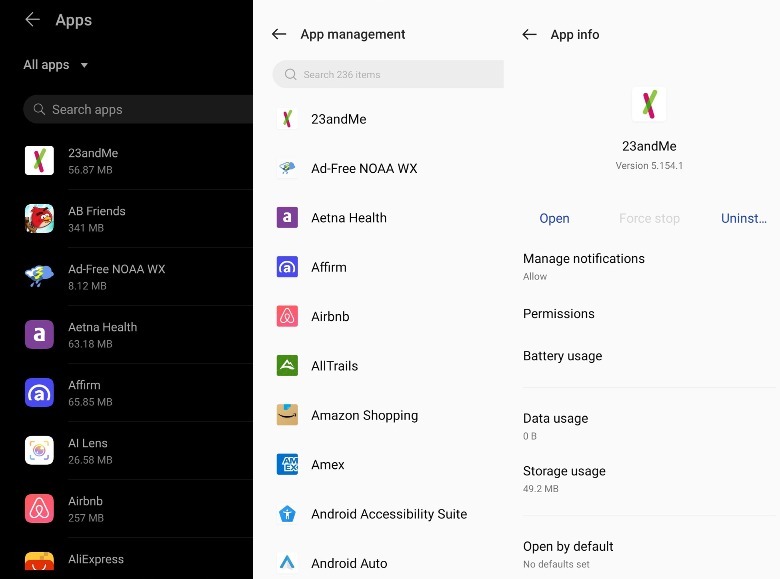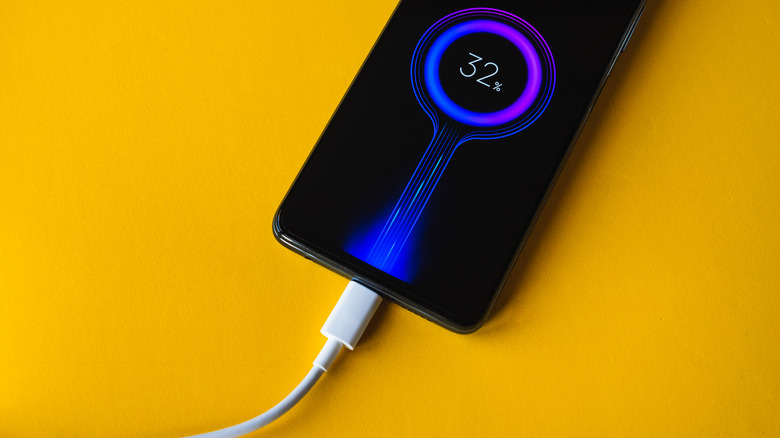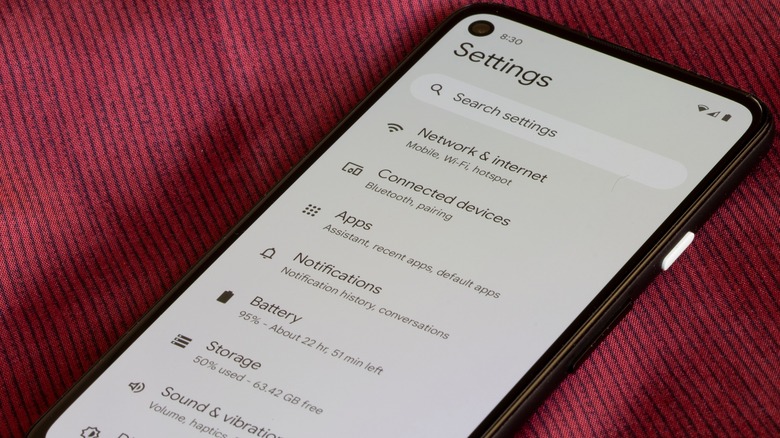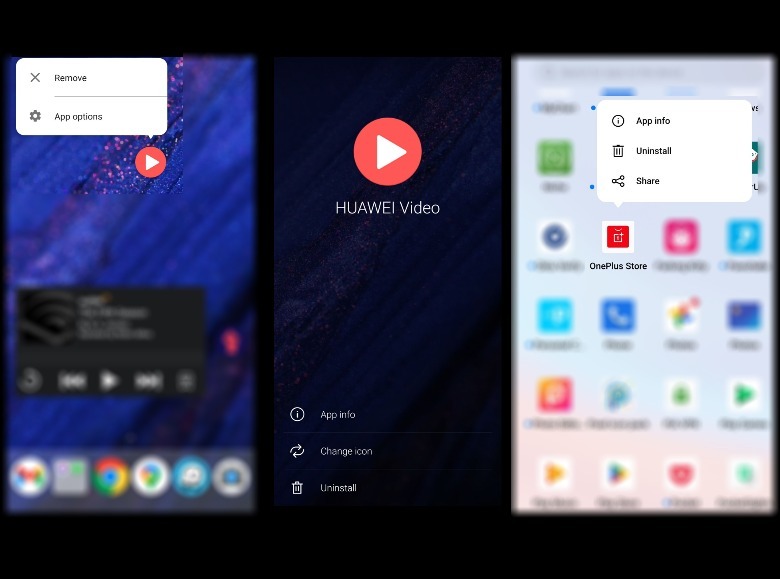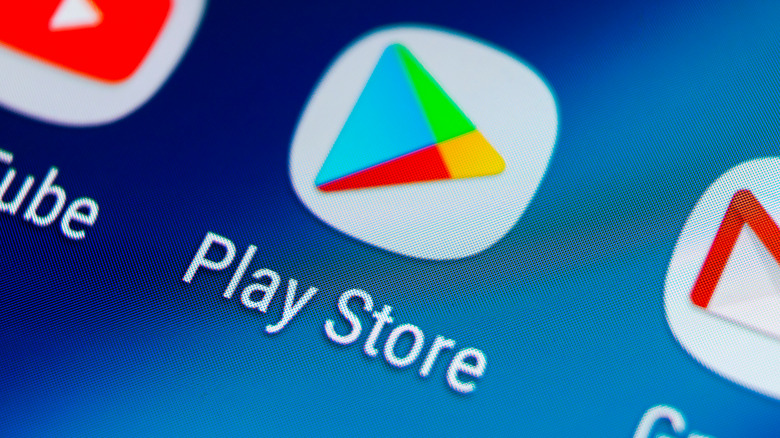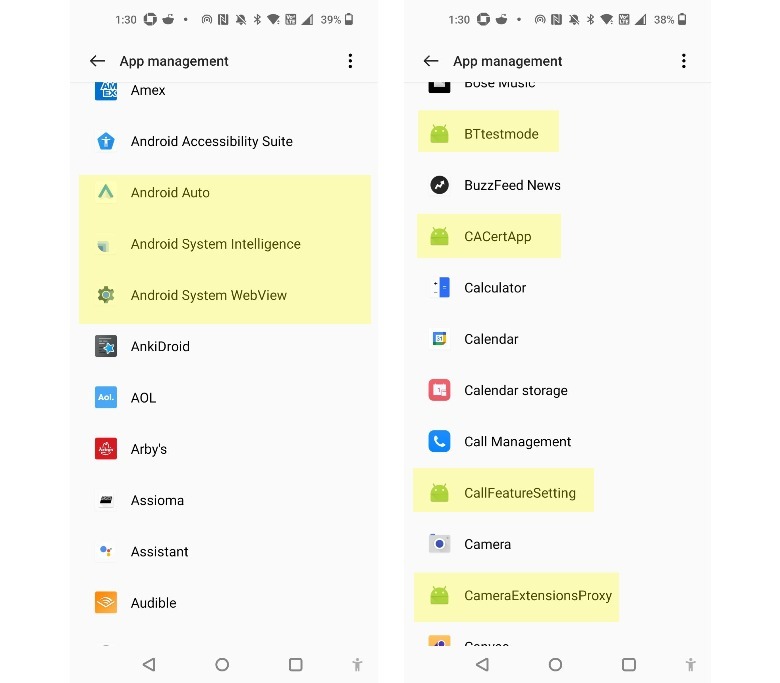Why You Should Probably Uninstall Bloatware On Your Android Phone
Those who own an Android phone may have noticed several apps already installed on the device the first time they turned it on. These pre-installed smartphone apps are more commonly referred to as "bloatware" or software programs created for or marketed by the device's manufacturer, distributor, or mobile carrier (via Avast). Upon further inspection, you may notice that most of these apps are unnecessary to your everyday smartphone use, and Android users who would rather not disrupt their device's functionality often leave them installed, untouched, and maybe even filed away in a folder of other unfamiliar apps.
According to Avast, some examples of Android phone bloatware include those that are free to use for a short trial period before they start to require payment for full features, ones that offer a service that's usually already built into most devices as a setting (such as app managers, calendars, and phone storage optimizers), and apps that are inundated with ads. Bloatware apps are rarely useful — you can probably find similarly designed apps in the Google Play Store that better suit your preferences. In some cases, leaving them installed on your Android phone could lead to various headaches, which makes getting rid of them a necessity.
Bloatware takes up a lot of storage space
One of the main reasons why you should uninstall or disable unnecessary apps on your Android smartphone is because they eat up storage. Among many Android online circles, Samsung smartphones are quite notorious for the massive amount of bloatware they have preinstalled — on a brand-new Galaxy S7, it reportedly took up as much as 8 GB of internal storage (via Tech Times). If you notice that you have apps that you find no use for, it's not a bad idea to delete them and reclaim that precious storage space.
If you need to check on how much space certain apps are taking up on your Android phone, go to "Settings" and hit "Apps" until you are on the page that lists all the apps installed on the device. On some Android phone models, you can see how much storage space each app uses right next to the app name. On others, you will need to manually tap on the app to see its storage usage on the app's info page.
Some preinstalled software discreetly runs in the background
Certain bloatware apps automatically run upon an Android phone's startup or perform tasks behind the scenes that you didn't initiate. Some also run round-the-clock, which can potentially cause performance issues in your smartphone. Constantly running programs consumes a lot of memory, which is necessary for executing processes that are vital to an Android phone's functionality (via Google). When an app eats up memory, your device can become sluggish, making it hard to multitask.
Apps that run nonstop can also cause serious battery drainage, so if you are finding yourself charging your Android more often than usual, this may be the work of bloatware hiding in your phone. Furthermore, phone batteries that are overused tend to overheat as well. If you're not using your Android phone or have no apps open but the back of the machine is hot to the touch, then you might have bloatware secretly running on your device.
When to delete potential bloatware apps
If you find yourself struggling to free up memory and storage space on your Android phone and find that you are often running into lagging issues, it's time to consider an app purge to do away with the ones you don't use on a regular basis. Keep in mind that you can always reinstall apps if you ever need them again. Definitely remove apps you don't remember installing yourself by long-pressing on the app icon and tapping "Uninstall" or "Remove" on the menu that pops up. Depending on what model of Android phone you have, you may need to hit an extra button to get to the page that has the uninstall option.
You can also go back to the Apps list page through your Android phone's settings, go through each app, and remove the ones you don't recognize by tapping on the app and hitting "Uninstall" on the app's info page — if those apps aren't bloatware, then it's at least a quick and easy way to free up some storage. Additionally, you can go through apps via the Google Play Store, arrange installed apps according to "least used," and delete off the top of the list.
What to do about Android apps you can't delete
According to Google, in most cases, pre-installed apps that come with an Android phone cannot be deleted or uninstalled. In lieu of removing bloatware apps, some phone manufacturers allow you to disable and hide them to keep them from cluttering your phone apps list. To disable undeletable apps, go to your Android phone's settings and go to the Apps list page. Select an app to get rid of — you'll know if it's an app that Android can't delete if instead of "Uninstall" or "Remove," it says "Disable." Hit it, tap "Disable App," then confirm that you want the app to be hidden from your Android phone's home screen.
You have to be really careful about disabling undeletable apps, though. Although it's possible that some of these apps are indeed bloatware that came with the Android phone when you first purchased it, they could also be Android-specific system apps that are necessary for the phone to work efficiently. If the app name starts with "Android" or has the Android logo as its app icon (as you see in the image above), it's best to err on the side of caution and leave it alone.
